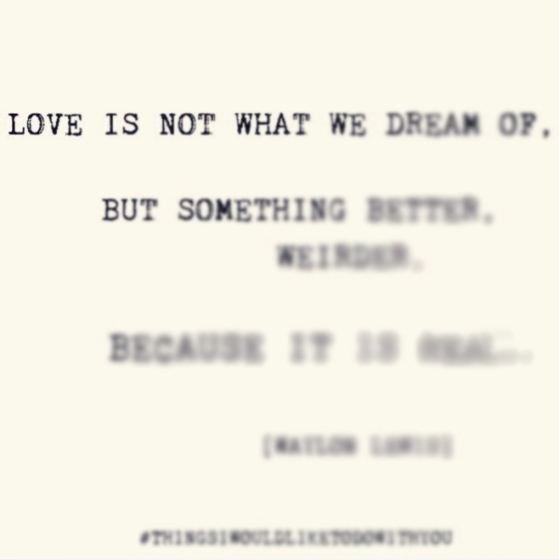The beginning of my divorce was a nightmare.
Fear of the unknown paralyzed me as I wondered what the future would hold. The rollercoaster of emotions meant that I never knew when I would break out into tears. Even the smallest business decisions left me panicked.
It wasn’t until later that I realized why that time was such a nightmare. It was because I had felt I had lost control of my life—the control that proved to be an illusion.
Divorce can feel like one never-ending day of having our internet connection shut down and waiting for the technician to stop by, in their obnoxious four-hour waiting window.
We feel frustrated and helpless, because there are million things we intended to do and take care of, and now have to wait and rely on an outside force to restore our sense of order and comfort. So, take that inconvenience of a lost internet connection, multiply it by 1,000, throw in heartbreak, panic, fear, and chaos, and it’s no wonder why divorce makes us feel so helpless. Splitting from has a spouse has a cruel way of reminding us that just when we thought we had control of our lives, we do not. And that is where the link of divorce drama and the loss of control collide.
On top of our anger, heartbreak or fear, we are also panicking because we no longer control what we thought we controlled.
Of course, when we are married to someone and that relationship ends, we grieve the loss of that life we thought we had together. We may subconsciously mourn the comfort and security that life gave us, even if deep down we may not have been happy with it.
But scratch the surface of that heartbreak and panic and what we find is the core factor that we are desperate to regain: the control. Whether it’s the control of an identity, the control of being comfortable, having the control of knowing we’d be waking up next to a body we were comfortable with, to habits that we knew, to a lifestyle to which we were accustomed, and to a future we had envisioned for ourselves, that we had assumed to be ours.
That is not to say that during our divorce, and during our separation, we are to sit by helplessly as our world unravels in front of us. Oh, no. It is quite the opposite. Once we understand that we cannot control the tide, only then can we start to identify the things that we do have power over.
Once we recognize that our emotional upheaval rests on our perceived inability to do anything about the situation, only then we are able to take our control back. I want you to remember these two key factors as you continue on your divorce journey. They are important regardless of your stage: whether it be the move-out, the negotiating or arguing over assets, or even if the divorce has been finalized and you are moving on with your life.
We must remember that although we no longer control this particular mess, we have the power to control how we react to it.
Let’s face it—if we had had the power to magically fix all the issues that led up to the split, or some clairvoyant ability to see the future and change it to our liking, chances are we would not be in the situation in the first place. But we are only humans, and it is unfair to hold ourselves to such a standard. The past has passed, and the only thing we can control right now is how we react to the situation. If something adverse comes our way, nobody is forcing us to become angry. Nobody is forcing us to become stressed or panicked or sad. Nobody is forcing us to let a disagreement or harsh words exchanged between our divorcing spouse ruin the rest of our day.
It is our choice to take the high road if something makes us angry. It is our choice, no matter how difficult it may be, to approach this adverse situation with calm and rational. It is our choice to acknowledge this trying time in our lives as what it is—a temporary bump in the road that we have the ability to navigate with grace so that we are able to move on with our lives. We can have the power to control our outlook and our own personal journey during the split, and who and what we want to be when the divorce roller coaster ride is over—nobody can take that away from us.
We must embrace the things we can control, and let go of the things we cannot.
Although the split can make us feel helpless, we forget all of the amazing things that we can actually control in our lives, and if we put the effort into those things, the calm will come. Divorce has a way of making us think we have control over nothing, which is not the case. We must focus on the almost infinite factors in our lives that we have the power to change.
A great way to remind ourselves of this is to make a list.
Divide a piece of paper into two columns and label them “What I Can Control” and “What I Cannot Control.” Be thoughtful and honest during this meditation. I found that what I could control—such as finding helpful resources, educating myself on the process, and asking for guidance and help when I need it—will far outnumber the things that I could not control.
The power to educate power to educate ourselves, even when your heart is broken and we are scared of the future, will provide us with a sense of calm and reassurance; that, “Yes, we will get through this difficult time.”
These actions lay the foundation that we cannot see now but exists. That we are in charge of our destiny, and that nothing—not even this divorce—holds us back.
We must embrace the fact that this the lack of control makes us free. Free to pursue another outcome in life that we didn’t even know existed.
Author: Martha Bodyfelt
Image: elephant journal Instagram
Editors: Sara Kärpänen; Emily Bartran












Read 0 comments and reply